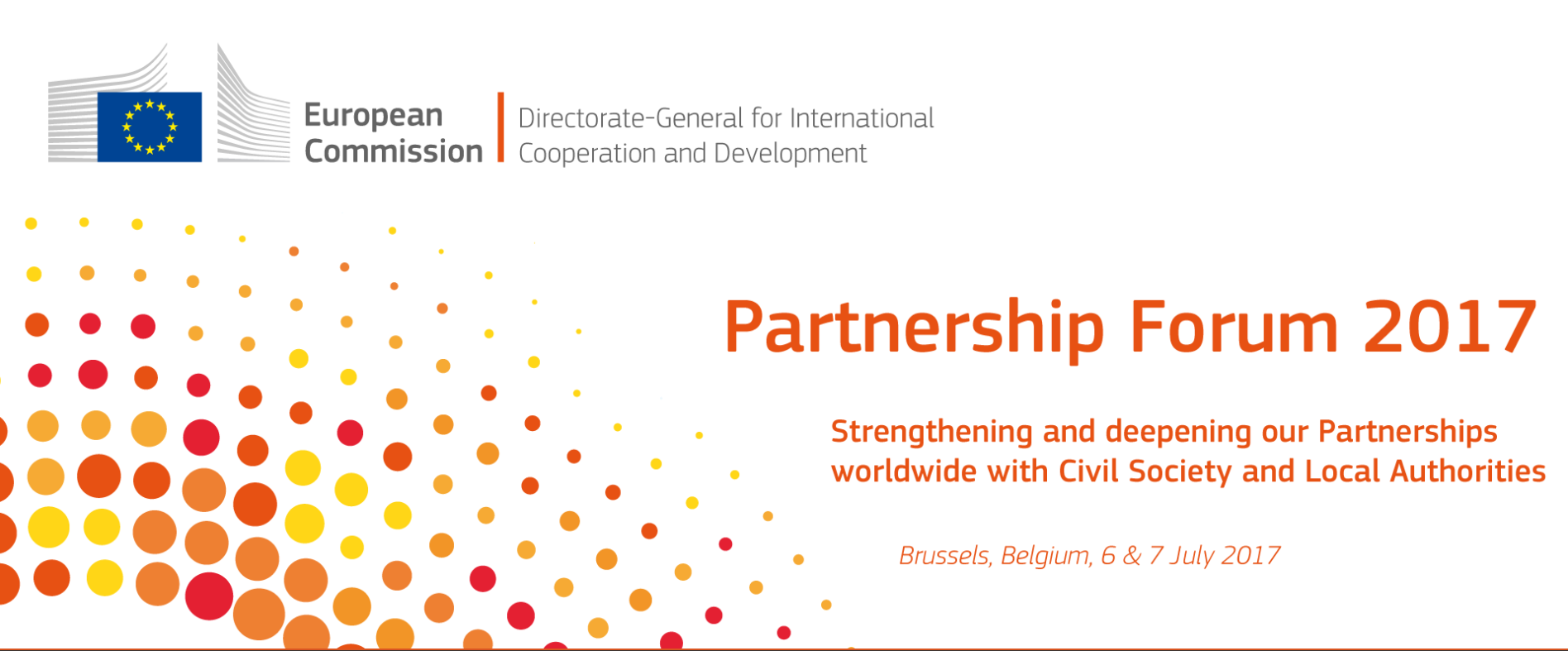|
While Theresa May and her conservatives are licking their wounds after a not so convincing parliamentarian win, the European leaders came together to build consensus for future foreign aid programming. The win of Macron in France over right-wing populist Marie LePen, and the not-so-convincing win of Wilders in the Netherlands seem to indicate that right-wing populism is on it's retreat and gradually replaced by a European consensus that we are in this together. However, on what specifically consensus can be reached in historically such a divided continent? In answering this question it helps to focus on joint challenges.
As a result, the European consensus is no longer necessarily mostly about a common market as much as it is about a common security policy and policy measures that curb migration flows, though these two seem to be interdependent. This has brought a new realism to the European continent that without investing in their neighbours also Europe's economic future looks grim. Hence the new European Consensus on Development was received with much interest and in the coming week will be further explored during the European Partnership Forum in Brussels, July 6 and 7. The forum is organized to explore ways in which the Non-State-Actors and Local Authorities (NSA-LA) budget line will take shape in the near future. Though the wording suggests otherwise, the European Consensus shows a lot less agreement on the way forward than suspected. It mostly states that 1) We are all in this together. 2) We need to arrive at solutions with all stakeholders on board. 3) And we need holistic solutions that will last. It is the typical bureaucratic language to say: "We have no clue where we are going, but let us stay together and hopefully arrive safely." Securitization of aid The ideas that are ventilated on the Partnership Forum pages rather expose a defensive attitude with most of the attention given to the ring around Europe. It is clear, Europe won't any longer be the care-taker of global stability along with its allies, of which it has lost a few with the British departing from the EU and the Americans further withdrawing from global agreements. Europe's foreign policies are therefore mostly concerned with European stability, currently challenged by influxes of perceived masses of refugees and economic migrants. For a while it looked like it would cause the union to collapse. However, the general public also sensed that wars and humanitarian disaster cannot be tackled by simply ignoring them and closing borders. A new narrative is required that reconnects Europe with the rest of the world. With the Americans withdrawing from the Paris Agreement Europe realises that it no longer can rely on the US in global policy formulation. It has to show-case a new way for dealing with diversity and multipolarity in facing global challenges. Collaboration with China in implementing the new green deal seems to emerge. The question is how this will play out in their quite different histories in relating to the rest of the world. China has always had the investment lenses on, while Europe only recently discovered these lenses and for many years mainly used rights based approaches to inform foreign policy. Will it be possible for these two paradigms to marry into a responsible investment discourse? Focusing on the state as the sole protector of rights and provider of basic services is increasingly challenged. When states fail you can go two directions with governance. Either localise it or centralise it even further to the sub-regional or regional level. Both movements are being made. Inter-state complexities that link to humanitarian situations are sorted at regional level. At the same time national policies focus on decentralisation of decision-making, shifting the burden to local level government bodies which in turn need a lot of capacity building to absorb these new responsibilities. Hence, budget-lines like the Non-State-Actors and Local Authorities become an important accelerator to support this movement. A future with cities Apart from decentralisation, another trend can be observed while reviewing how the latter budgetline takes shape. The focus shifts from the rural to the urban space with increasing number of people living in cities. In the face of increasing challenges in the rural space, the answer for dealing with these challenges is hoped to be found in responsible urban planning and development with a focus on innovation and youth employment. Cities of the future challenges pop-up everywhere as well as innovation centres around mobility challenges. 'Engineering the crowd' in ways that support new economies seems the way forward. How will this urban bias serve those in the rural space? Will they be 'left to themselves' to sort out their own vulnerabilities while having to deal with many demands that arise from cities? Cities need water and food supply as well as power supply. The surrounding rural space may see this as an opportunity. More often city development is considered a threat. The rural space for years has been utilized to provide for its own inhabitants. Will rural areas be able and willing to meet the needs of the towns? Customary rights over the use of natural resources often clashes with national policies that support land acquisition for commercial enterprising. Often there is a fine line between consensus and conflict. In the end solutions are to be found that everyone can live with. These solutions have to provide perspectives on sustainable futures for both urban and rural populations. Local rights and realities, domestic policies and foreign direct investment should be balanced. If only this could be the consensus!
0 Comments
|
About meMy name is Reinier van Hoffen. U®Reading
Click here for a summary.
Also find the text of a lecture Dr. Achterhuis held at the 2012 Bilderberg conference. Archives
August 2022
|
AddressNachtegaallaan 26
Ede, the Netherlands |
Telephone+31 (0)6 1429 1569
|
info@uraide.nl
|

 RSS Feed
RSS Feed
















